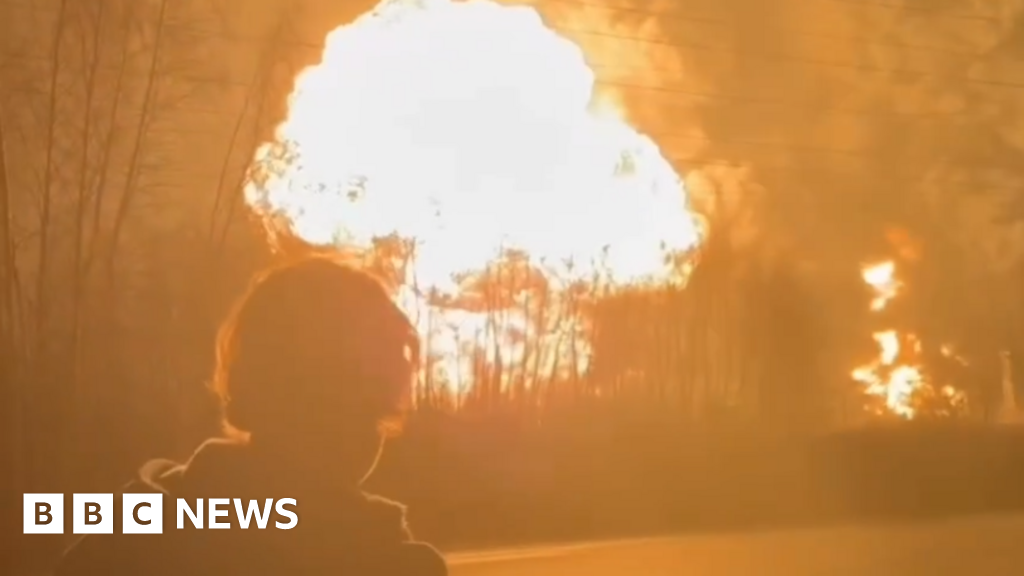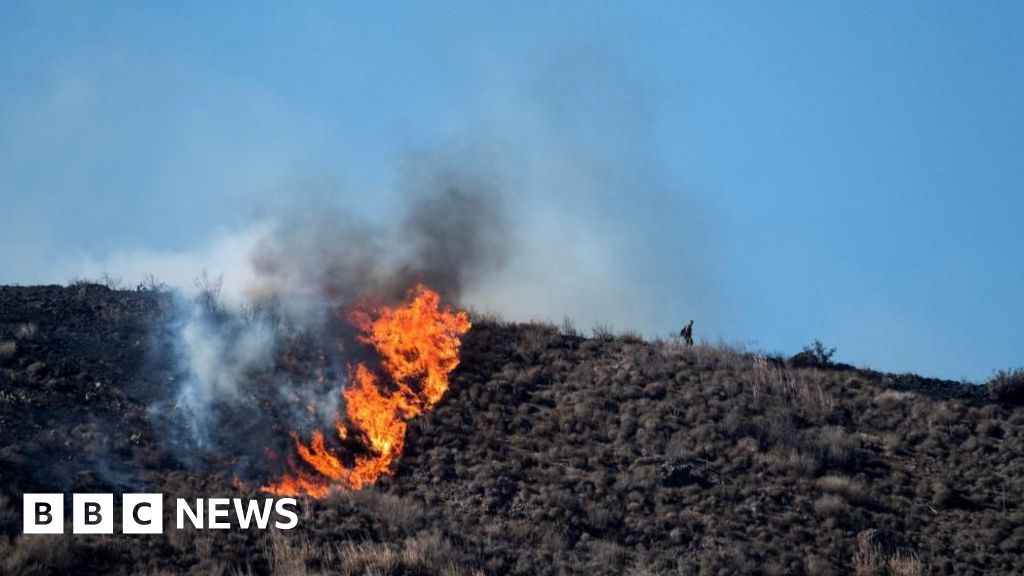ARTICLE AD BOX
By Merlyn Thomas
BBC News
Watch: Footage from the Danish Defence of what it says is a gas leak from the pipelines
The EU has said leaks in two major gas pipelines from Russia to Europe were caused by sabotage - but stopped short of directly accusing Russia.
Deliberate disruption would result in the "strongest possible response", said the head of the European Commission, Ursula von der Leyen.
Ukraine earlier went further, accusing Russia of a "terrorist attack".
The EU has previously accused Russia of using gas supplies, and the Nord Stream line, as a weapon against the West.
The US Secretary of State Antony Blinken said he thought the leaks would "not have a significant impact on Europe's energy resilience". Neither pipeline is transporting gas at the moment, although they both contain gas.
Mr Blinken did not directly accuse Russia - but said it would be in "no-one's interest" if they were caused deliberately.
The president of the European Council, Charles Michel, echoed Ms von der Leyen's message.
"Nord Stream sabotage acts appears to be an attempt to further destabilise energy supply to [the] EU," he said on Twitter.
The operators of Nord Stream 2 warned of a loss of pressure in the pipeline on Monday afternoon. That led to Danish authorities saying ships should avoid the area near the island of Bornholm.
Then on Tuesday, the operator of Nord Stream 1 said the undersea lines had simultaneously sustained "unprecedented" damage in one day.
The Nord Stream 1 pipeline - which consists of two parallel branches - has not transported any gas since August when Russia closed it down. It blamed the closure on maintenance - the EU said it was trying to weaponise Europe's gas supply.
Nord Stream 1 stretches 745 miles (1,200km) under the Baltic Sea from the Russian coast near St Petersburg to north-eastern Germany. Its twin pipeline, Nord Stream 2, was halted after Russian invaded Ukraine.
A Kremlin spokesperson, Dmitry Peskov, said he was "extremely concerned" about the leaks, adding that the possibility of a deliberate attack could not be ruled out.
Seismologists reported underwater blasts before the leaks emerged. Denmark's Defence Command has released footage of the leaks which shows bubbles - the largest is 1km (0.6 miles) in diameter - at the surface of the Baltic Sea.
"There is no doubt that these were explosions," said Bjorn Lund of Sweden's National Seismology Centre.
On Tuesday, Ukraine's presidential adviser Mikhaylo Podolyak said the leak was "nothing more than a terrorist attack planned by Russia and an act of aggression towards the EU".
The pipeline's operators said it was impossible to estimate when the system's infrastructure would be restored.

 2 years ago
23
2 years ago
23








 English (US) ·
English (US) ·